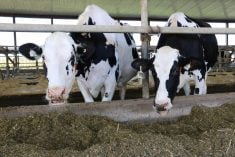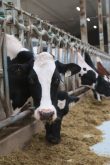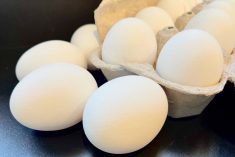Ottawa | Reuters –– Canada is facing a tough squeeze at talks on a major Pacific trade treaty because the concessions other nations want it to make could cause serious problems for the governing Conservatives in this October’s general election.
Canada, one of 12 nations aiming to create the Trans-Pacific Partnership (TPP), is under pressure to start dismantling protections for its dairy and poultry industries that keep domestic prices high and make imports expensive.
If Canada cannot strike a deal it will be left out of the first round of TPP, and that would put it at a disadvantage if it wants to join later.
Read Also

U.S. grains: Soy rally continues after Trump says China to expand purchases
Chicago | Reuters – Chicago soybeans extended gains on Thursday, a day after U.S. President Donald Trump said China had…
Canada’s powerful dairy lobby opposes major changes to the country’s so-called supply management system, and altering it could cost the Conservatives votes in agricultural areas that tend to favor the right-of-centre party.
This might make all the difference in an election that opinion polls suggest is too tight to call.
Time is running short for Canada to reveal what it is prepared to give up in TPP, but Ottawa has not yet made a move.
Months of behind-the-scenes pressure and complaints broke into the open on Thursday, when the U.S. agriculture secretary said the Canadians might run out of time.
“The Americans have clearly decided they want to make Ottawa sweat,” said one non-Canadian source with direct knowledge of the talks. The source said if Ottawa is left out of the first round it would be “strategically disastrous,” noting it could take five years for a second round to start.
Canada’s Agriculture Minister Gerry Ritz said Friday that Canada would “certainly be there right till the bitter end” but he did not answer questions about concessions on supply management, which was introduced 40 years ago to protect farmers from fluctuating prices.
Some leading Canadian business groups say supply management is restrictive and keeps prices high. Yet no politician has ever dared contemplate reforms, and the three main political parties all say they back the system.
Maxime Bernier, the Conservatives’ minister of state for agriculture, said this week the government has always protected supply management and “will continue to defend Canadian industries.”
Caroline Emond, executive director of the Dairy Farmers of Canada, dismissed talk of major reform, noting that “the agricultural vote is an important vote.”
Emond’s group was upset that when Canada negotiated a recent free trade treaty with the European Union, it gave away an extra 17,000 tonnes of cheese, less than four per cent of the overall Canadian market.
The other TPP nations are likely to demand much more than that. One person briefed on the U.S negotiating position, who declined to be identified, said 17,000 tonnes was “a derisory number” in the TPP context.
“I cannot see how Canada will make a substantial offer to open up dairy markets, given the political consequences,” said a third source familiar with the negotiations.
“I also cannot see how the United States, Japan and the others will accept the initial offer Canada does end up making.”
— David Ljunggren is Reuters’ national political correspondent in Ottawa. Additional reporting for Reuters by Krista Hughes in Washington.
















